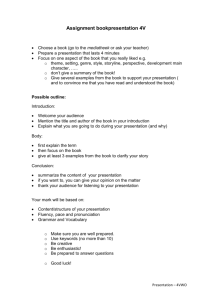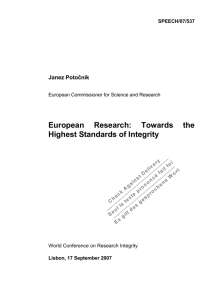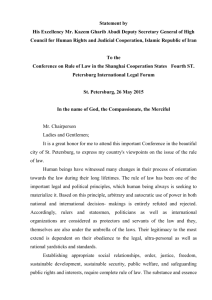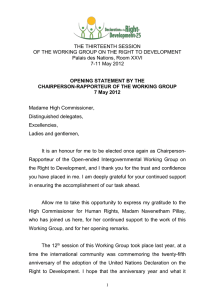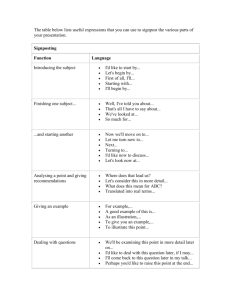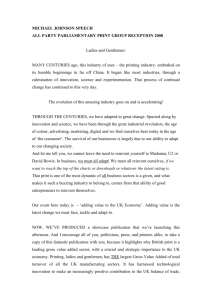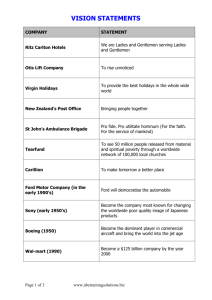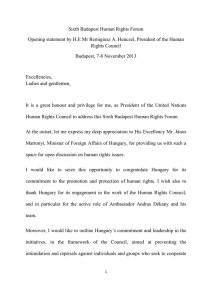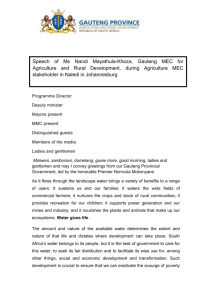INDIA speech
advertisement
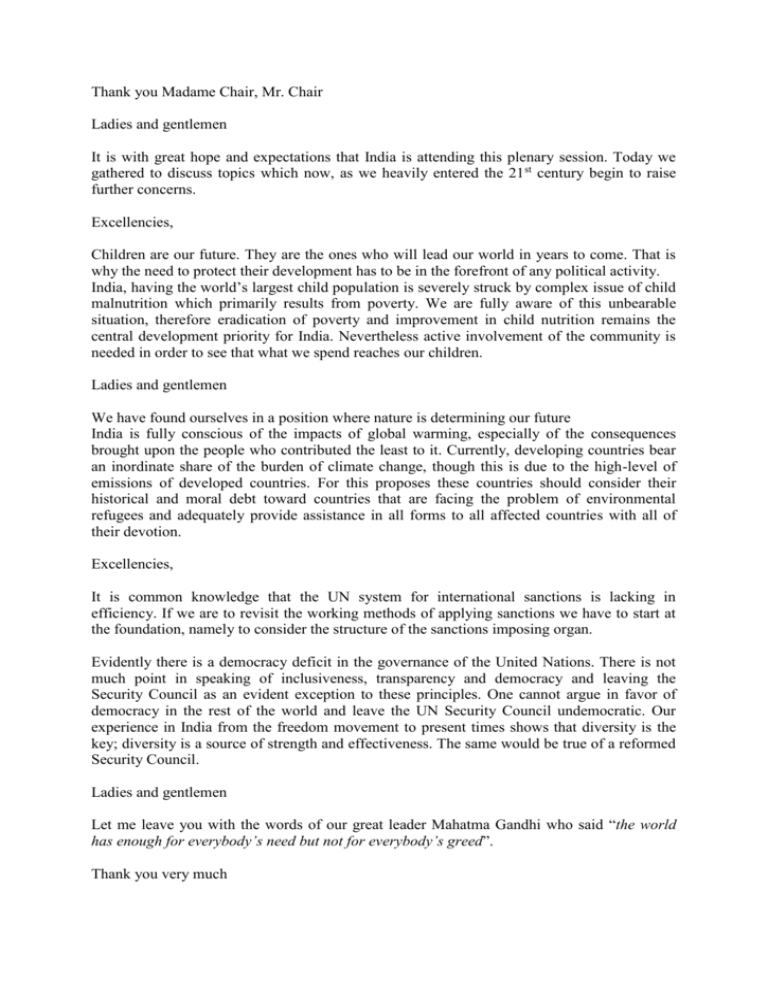
Thank you Madame Chair, Mr. Chair Ladies and gentlemen It is with great hope and expectations that India is attending this plenary session. Today we gathered to discuss topics which now, as we heavily entered the 21st century begin to raise further concerns. Excellencies, Children are our future. They are the ones who will lead our world in years to come. That is why the need to protect their development has to be in the forefront of any political activity. India, having the world’s largest child population is severely struck by complex issue of child malnutrition which primarily results from poverty. We are fully aware of this unbearable situation, therefore eradication of poverty and improvement in child nutrition remains the central development priority for India. Nevertheless active involvement of the community is needed in order to see that what we spend reaches our children. Ladies and gentlemen We have found ourselves in a position where nature is determining our future India is fully conscious of the impacts of global warming, especially of the consequences brought upon the people who contributed the least to it. Currently, developing countries bear an inordinate share of the burden of climate change, though this is due to the high-level of emissions of developed countries. For this proposes these countries should consider their historical and moral debt toward countries that are facing the problem of environmental refugees and adequately provide assistance in all forms to all affected countries with all of their devotion. Excellencies, It is common knowledge that the UN system for international sanctions is lacking in efficiency. If we are to revisit the working methods of applying sanctions we have to start at the foundation, namely to consider the structure of the sanctions imposing organ. Evidently there is a democracy deficit in the governance of the United Nations. There is not much point in speaking of inclusiveness, transparency and democracy and leaving the Security Council as an evident exception to these principles. One cannot argue in favor of democracy in the rest of the world and leave the UN Security Council undemocratic. Our experience in India from the freedom movement to present times shows that diversity is the key; diversity is a source of strength and effectiveness. The same would be true of a reformed Security Council. Ladies and gentlemen Let me leave you with the words of our great leader Mahatma Gandhi who said “the world has enough for everybody’s need but not for everybody’s greed”. Thank you very much


